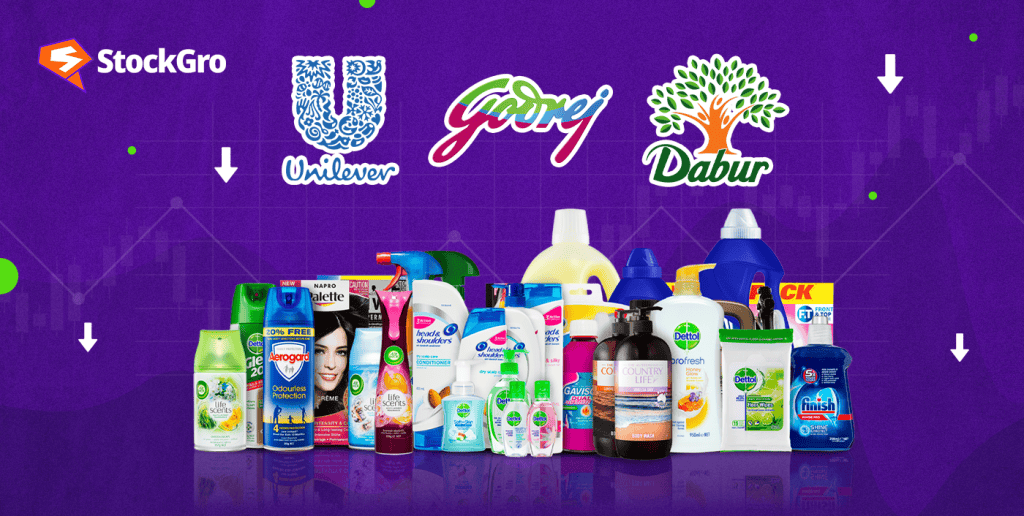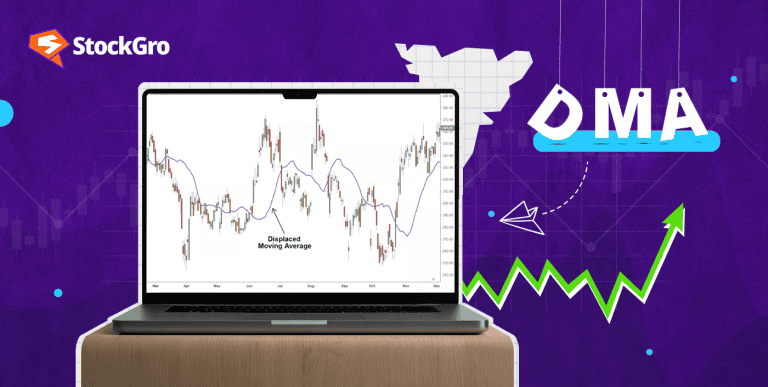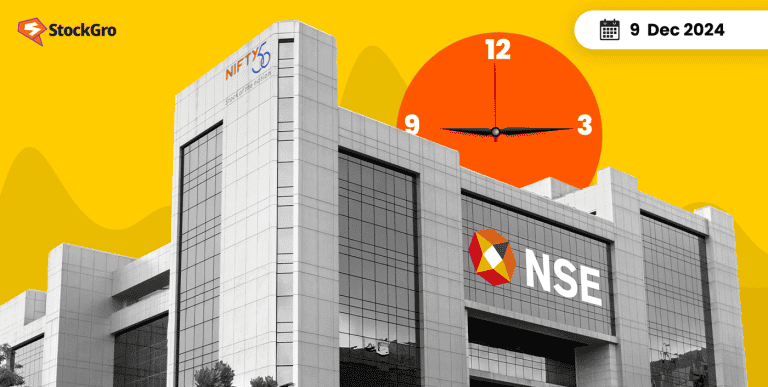
Shares of top FMCG companies like Godrej Consumer, Hindustan Unilever (HUL), and Dabur fell sharply, with losses ranging between 3% and 9% on December 9, 2024. The slump was triggered by a weak quarterly update from Godrej Consumer Products Ltd, highlighting subdued demand conditions in India.
The Nifty FMCG index, reflecting the sector’s performance, declined by 2.27%, marking it as the worst-performing sectoral index of the day.
What’s behind the decline in FMCG stocks?
The FMCG sector has been grappling with several challenges:
- Subdued Urban and Rural Demand: Urban consumption remains weak despite some recovery in rural areas.
- Economic Pressures: Slowing growth and low wage increases have curbed consumer spending.
- Rising Input Costs: A 20-30% YoY surge in palm oil prices has affected profit margins, particularly for soap manufacturers.
- Weather Conditions: Delayed winters in North India and cyclones in the South have impacted sales in key segments like home insecticides.
Stock performance: A quick snapshot
| Company | Current Price (₹) | 1-Day Decline | 52-Week High (₹) | Market Cap (₹ Cr) |
| Godrej Consumer | 1,119 | -9.68% | 1,541.30 | 1.14 lakh |
| Hindustan Unilever (HUL) | 2,391.45 | -4.00% | 3,034.50 | 5.66 lakh |
| Dabur India | 504.85 | -3.57% | 672 | 89,613 |
| Marico | 605 | -4.34% | 712 | 77,202 |
| Tata Consumer Products | 938 | -3.90% | 1,176.00 | 87,754 |
(as on 9th dec 2024)
Impact on the FMCG Index
The Nifty FMCG index dropped to 56,385, down 2.3% during intra-day trading. Technical charts indicate a downside risk of 4.6%, with support at 55,550 and resistance at 57,230.
Also read: List of FMCG Stocks in India 2025
Godrej consumer takes the biggest hit
Godrej Consumer Products led the decline with a 9.68% drop, following a quarterly update that flagged weak volume growth. Key factors affecting the company include:
- Soap Segment Challenges: Higher palm oil prices forced price increases and grammage reductions.
- Home Insecticides Segment: Sales were affected by adverse weather conditions.
- Inventory Reduction: Retailers and households have reduced inventory levels, affecting immediate sales.
Despite these challenges, the company expects demand to stabilise in the next few months.
You may also like: Fast-Moving Consumer Goods (FMCG) Sector- A Safe Haven in Bear Markets?
What experts say about FMCG stocks
- Sudip Bandyopadhyay (Inditrade Capital):
- FMCG stocks like HUL, Dabur, and Britannia are attractive at current valuations.
- Festive spending and improved rural demand could drive a recovery in Q4FY25.
- Taher Badshah (Invesco Mutual Fund):
- Increased competition and cyclical challenges are impacting the sector.
- Prefers consumer discretionary stocks over FMCG for now.
- Antique Stock Broking:
- On-ground interactions suggest weak festive season demand and delayed winter product sales.
Will FMCG stocks rebound?
Despite the short-term challenges, there are reasons to remain optimistic about the sector:
- Valuation Corrections: The recent selloff has made several FMCG stocks more attractive for long-term investors.
- Festive Season Boost: Improved rural demand and festive spending could drive recovery.
- Resilient Demand: FMCG products remain essential, ensuring steady demand in the long run.
You may also read: HUL vs ITC shares – Which FMCG stock is your pick?
Expert Outlook: Key insights for investors
| Factor | Impact on FMCG Stocks |
| Subdued Demand | Short-term revenue and margin pressures. |
| Valuation Opportunities | Attractive entry points for long-term investors. |
| Competition from Regional Players | Intensified pressure on market leaders. |
| Festive Season Demand | Potential for a recovery in Q4FY25. |
Conclusion
The FMCG sector is currently navigating turbulent waters, with demand concerns weighing heavily on stock performance. However, the sector’s fundamental resilience and essential nature make it a promising area for long-term investment.
If you’re considering FMCG stocks, focus on companies with strong market presence and diversified portfolios like HUL, Dabur, and Britannia. Patience and a long-term perspective could pay off in this challenging yet opportunity-laden market.

